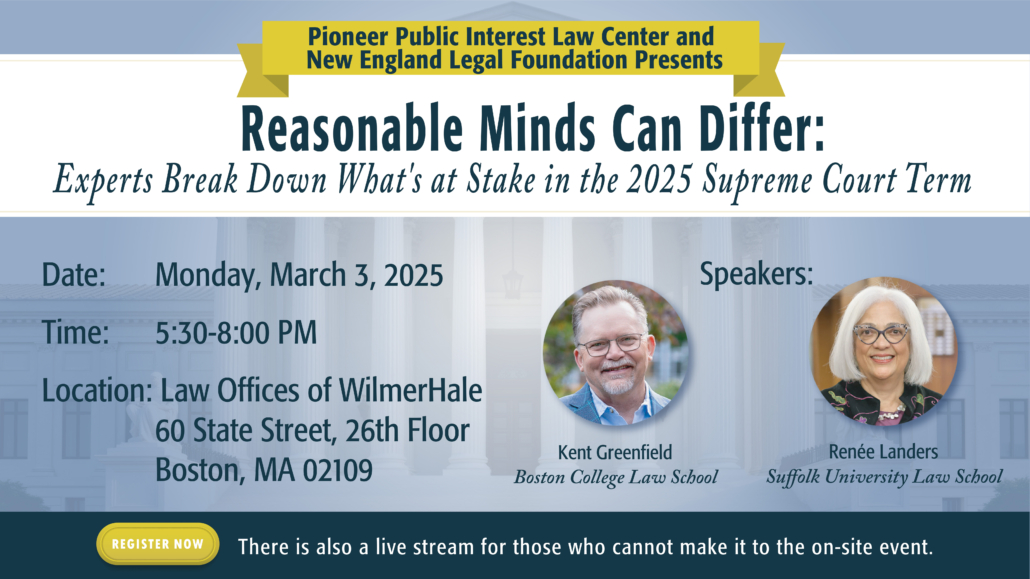Expanding Voc-Tech Education & Equality of Opportunity
Vocational-Technical Education, Equality of Educational Opportunity Are Focus of Upcoming Forum
BOSTON – A century ago, African-American civil rights leaders, Booker T. Washington and W.E.B. Du Bois, framed a national debate about educational opportunity and racial uplift. Washington believed vocational-technical education was the best route to equality for African-Americans, while Du Bois argued for the liberal arts.
Watch the video of today’s vocational-technical education forum:
Elements of that debate are still with us today and will be the subject of “Pathways to Equal Opportunity: Vocational-Technical Education and the Liberal Arts,” a Pioneer Institute forum to be held Monday, 8:00 a.m. at the Omni Parker House hotel in Boston.
Co-keynote addresses will be delivered by Dr. Robert Norrell and Dr. Jacqueline Moore. Robert Norrell is professor and Bernadotte Schmitt chair of excellence with the Department of History at the University of Tennessee. He is the author of the widely acclaimed Up from History: The Life of Booker T. Washington (2009). Another of his books, Reaping the Whirlwind: The Civil Rights Movement in Tuskegee, won the Robert F. Kennedy book award in 1986.
Dr. Moore is a professor of History at Austin College in Texas and the author of Booker T. Washington, W.E.B. Du Bois, and the Struggle for Racial Uplift (2003). She is co-editor of the African-American History Series for Rowman and Littlefield.
Following the keynotes, a panel discussion will focus on K-12 education policy as it relates to academic content, voc-techs, college and career readiness, and the growing national discourse about equality of educational opportunity and social mobility.
The panel will be moderated by Pioneer’s Distinguished Senior Fellow in Education and former Massachusetts Senate President Tom Birmingham. Prior to becoming Senate president, Birmingham was Senate chair of the Joint Committee on Education and one of the architects of the commonwealth’s landmark 1993 Education Reform Act.
Panelists will include Tuskegee University President Brian Johnson, David Ferreira, executive director of the Massachusetts Association of Vocational Administrators, Alison Ledger Fraser, development director at Blackstone Valley Technical High School, and D.M. Rumley, owner of Red Heir Horticulture, the manufacturer of hydroponically grown edibles in Birmingham, Alabama.
Alison Ledger Fraser is also co-author, with Salem State University Professor of Economics Ken Ardon, of Pioneer’s newest White Paper, “Expanding Access to Vocational-Technical Education in Massachusetts,” which will be released at the event.
Welcome remarks will be delivered by Gerard Robinson, resident fellow at the American Enterprise Institute. Robinson is a former president of the Black Alliance for Educational Options and served as Florida’s commissioner of education and secretary of education in Virginia.
“Pathways to Equal Opportunity: Vocational-Technical Education and the Liberal Arts” is co-sponsored by the Massachusetts Association of Vocational Administrators, the Charles Hamilton Houston Institute for Race & Justice at Harvard Law School, the Massachusetts Historical Society, the Gilder Lehrman Institute of American History, We the People: The Citizen and the Constitution, the Program on Education Policy & Governance at the Harvard Kennedy School, Tuskegee University and Associated Industries of Massachusetts.
Drs. Norrell and Moore will hold a book signing following the event.
The event is free and open to the public, and will be available for live viewing online here. Refreshments will be served. To attend, please RSVP to Brian Patterson at (617) 723-2277, x217 or bpatterson@pioneerinstitute.org.
About Pioneer
Pioneer Institute is an independent, non-partisan, privately funded research organization that seeks to improve the quality of life in Massachusetts through civic discourse and intellectually rigorous, data-driven public policy solutions based on free market principles, individual liberty and responsibility, and the ideal of effective, limited and accountable government.




